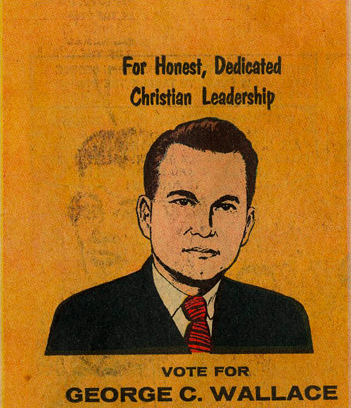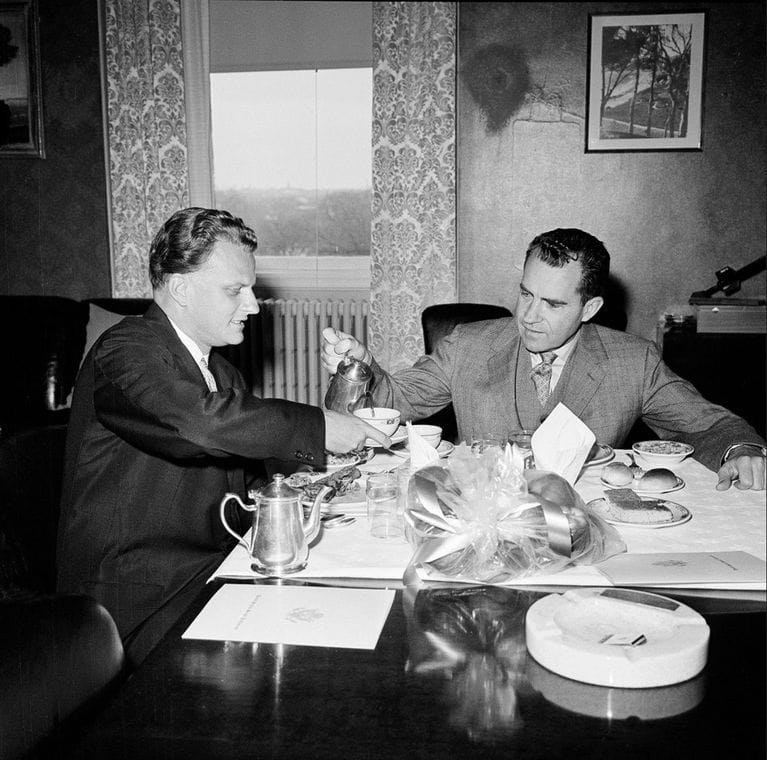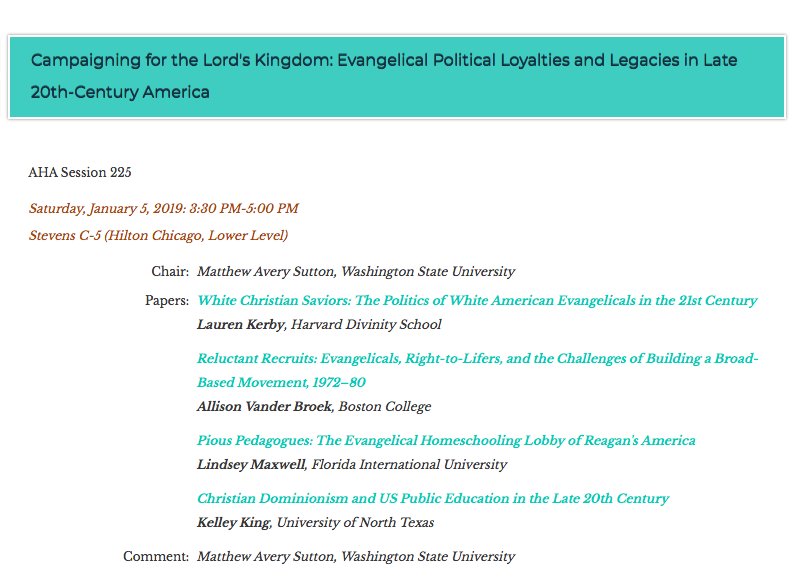Graham even drafted a few speeches for Nixon.
Nixon trusts Graham so much that he starts having him do some behind-the-scenes political work. Nixon sends Graham deliver messages and do delicate missions.
Regular, random people would send telegrams to Graham with messages for Nixon, it was so public they were connected.
Immediately, Graham realizes this is dumb. It’s not going to happen. Wallace is talking and talking about what he’ll do in his administration and Graham thinks, “the Presidential bug has bitten him.”
Graham is flabbergasted. He thinks Wallace is serious. The segregation-forever candidate wants famous evangelist Billy Graham to be his VP.
Graham is flabbergasted. He thinks Wallace is serious. The segregation-forever candidate wants famous evangelist Billy Graham to be his VP.
Graham chalks this up to a misunderstanding.
Nixon asks Graham: “Are you interested in the Vice Presidency?”
Graham has to sit there and think, are they right? Does he want to be in national politics?





















